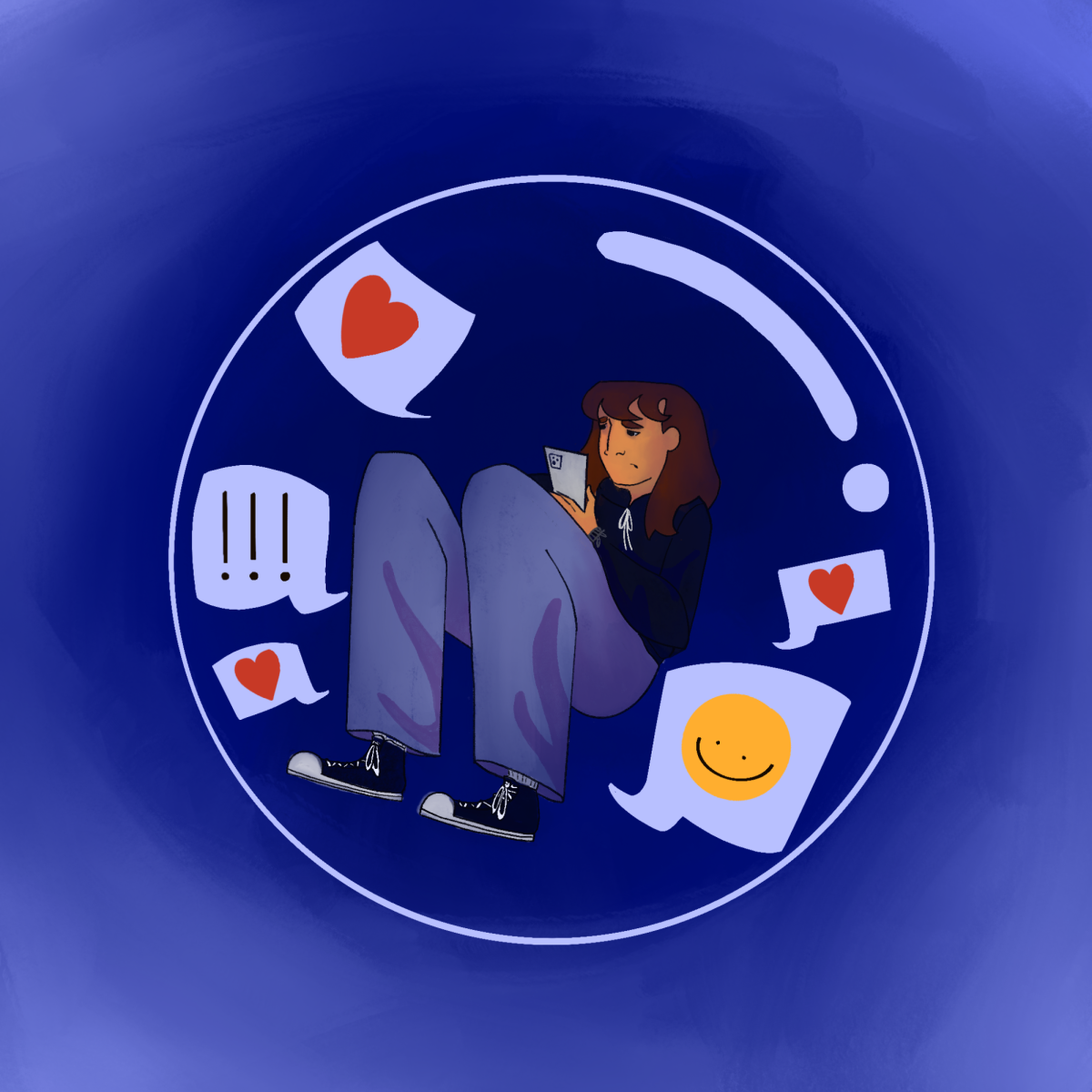In today’s social media-oriented world, the fear of missing out is a prevalent feeling among many teenagers, which often arises when students witness others participating in activities they are not a part of. For SCHS students, popular trends are one way peers can feel left out.
Junior Alex Chia believes that many students are pressured to post content in order to fit in.
“I personally don’t care because I don’t really post anything, but I feel like in order to get attention, people conform to the trends,” Chia said.
According to SCHS Community Health Outreach Worker Jhoanna Arias-Hernandez, social media is a prominent part of students’ lives, often causing a pressure to portray a certain perception of oneself.
“I feel there is a pressure to share and a pressure to perform. For example, say you go abroad – you have to take the perfect Instagram picture to put it out there so everyone knows, and yet that can definitely be distracting (from) a multitude of things, like academics,” Arias-Hernandez said.
One of the main aspects that needs to be distinguished when it comes to FOMO is the difference between missing an experience and missing a certain event. For sophomore Gabby San Luis, it’s less about missing the event itself and more about the context or social interaction that comes with it.
“It’s mainly about missing the event itself because let’s say if I miss out on going to the movies with my friends, I could still go with my family, or I could go by myself. I think it’s more about the event where it’s like, ‘I could have gone with my friends. I could have gone with these people,’” San Luis said. “When people start talking about it at school or on social media, I think that’s where the FOMO really kicks in.”
Chia highlighted how being surrounded by his friends makes the event worthwhile.
“At least for me, it’s missing being with people, not the actual (event) itself, because most things you’d rather be with people,” Chia said. “If you’re with people you know really well, then the event becomes interesting, so I think it’s more of just the people than the experience.”
In addition, San Luis feels a sense of drift when many students are constantly on social media or on their phones, contributing to an environment where it seems harder to make connections. This can make interactions feel superficial, specifically for those not engaged with social media trends.
“I feel like at school, where it’s that feeling where everybody has an inside joke and you’re not a part of it,” San Luis said.
Arias-Hernandez mentioned that social dynamics between friend groups can be impacted through the concept of FOMO. She encourages students to be mindful of how they spend their recreational time as an excess of social media use can be detrimental.
“What helps me meditate or control the amount of time I spend on the app is opening the app with the purpose. Like, ‘Okay, I’m only gonna look up stuff related to this one TV show I like.’ I watched that and I’m done,” Arias-Hernandez said. “If you open the app without an intention, then you can just mindlessly scroll forever.”
Whenever there are social events occurring, either at school or other popular trends, students can feel left out when they see their peers posting or sharing about their time. San Luis acknowledged how when she is busy with work, she does not seem to put her energy into seeing what others are doing.
“I don’t really mind because I’m at work, and I’m kind of working in the moment. I don’t really go on my phone to check what so and so is doing right now,” San Luis said. “When people talk about it at school, that’s when I feel most affected.”
Coming from a therapeutic approach, Arias-Hernandez acknowledged the importance of recognizing one’s feelings and doing one’s best to communicate them to others.
“Communicating with your friend groups and letting them know ‘Hey, I missed out on Monday’s activity. Can we do something on Friday?’” Arias-Hernandez said. “Just honest, open communication and dialogue between everybody just to make sure everyone’s included.”
Additionally, as social media contributes to FOMO, Arias-Hernandez suggested a mindful use of technology, as it will ultimately aid with feelings of being left out.
“Using your applications intentionally, so, ‘I’m going to open Instagram to see my friend’s profile and see these five other things and that’s it,’”Arias-Hernandez said. “Just being very intentional, (making) conscious decisions on what we produce, what we consume, and trying all the while trying to be present in the moment. Even just recognizing what our goal is helps.”


